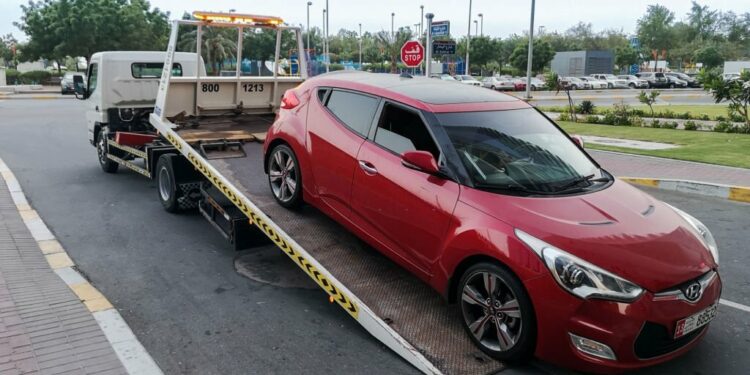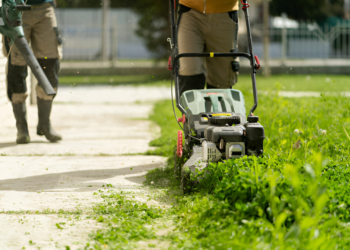State to State Towing: An Essential Overview
When it comes to relocating or transporting vehicles over long distances, state to state towing becomes invaluable. However, understanding the ins and outs of this service can sometimes be overwhelming. Thankfully, in this guide, we’ll simplify everything you need to know about state to state towing.
What Exactly is State to State Towing?
State to state towing refers to the process of transporting a vehicle from one state to another, often using specialized trucks or trailers. Unlike local towing, which deals with short distances within a city or town, state to state towing addresses longer hauls.
Why Might You Need This Service?
There are countless reasons, but here are the most common:
- Relocation: Naturally, if you’re moving from one state to another, you might want to bring your vehicle along without driving it yourself.
- Vehicle Purchase: Buying a car from another state? You’ll need a way to get it home.
- Collector’s Display: For those who own vintage or collectible vehicles, transporting them safely to shows or exhibits in other states is crucial.
Choosing the Right State to State Towing Company
It’s vital to pick a trustworthy company. Here are some tips to help you in your selection process:
- Experience: Often, the longer a company has been in business, the more reliable they are. They’ve been through it all and know how to handle unexpected challenges.
- Reviews: Take a peek at what others are saying. Real experiences from real people can give you insights.
- Services Offered: Some companies specialize in certain types of vehicles. Make sure they can handle yours.
- Insurance: Ensure the company has proper insurance in case of any accidents or damages during transit.
The Costs Involved
Now, when considering state to state towing, it’s understandable to think about the price tag attached. The cost often depends on:
- Distance: The further the journey, the higher the price.
- Vehicle Size and Weight: Larger, heavier vehicles might cost more to tow.
- Special Requirements: Need additional protection or services? These can add to the cost.
Preparing Your Vehicle for Towing
Before you hand over your beloved vehicle, there are a few things you should do:
- Clean Your Vehicle: This makes it easier to identify any existing damages.
- Document Existing Damage: Take photos from various angles. This can be handy if there’s a dispute later on.
- Remove Personal Items: Towing companies aren’t responsible for personal belongings left in the vehicle.
- Check Fluids: Ensure there are no leaks, as these can be hazardous during transport.
Read Also Tips to Choose the Best Towing Service
The Towing Process Explained
Once you’ve selected a company and prepared your vehicle, what happens next?
- Pick-Up: The towing company collects your vehicle from the agreed-upon location.
- Transport: Your vehicle is securely fastened and transported to its destination. The method of transport might vary – from open trailers to enclosed trucks.
- Drop-Off: Upon reaching the destination, your vehicle is safely offloaded and handed over to you or an authorized individual.
Common Misconceptions about State to State Towing
In the world of towing, myths abound. Let’s debunk some common misconceptions:
- “Any Towing Company Can Do State to State Towing”
This isn’t necessarily true. Not all local towing companies have the equipment or licenses for long-distance transport. Always check their credentials. - “It’s Cheaper to Drive the Car Myself”
While it might seem cost-effective initially, when you factor in gas, wear and tear on the vehicle, potential hotel stays, and food along the way, hiring a professional might be comparably priced, not to mention more convenient. - “All State to State Towing Companies are the Same”
Like in any industry, there’s a range of service quality. It’s crucial to read reviews, get recommendations, and do your research.
Essential Questions to Ask a Towing Company
Before finalizing your decision, arm yourself with these questions:
- How Long Will the Transport Take?
Get an estimated timeline so you can plan accordingly. - What Type of Equipment Will Be Used?
This ensures they have the right tools for the job, especially if your vehicle has special requirements. - Are There Any Hidden Fees?
This ensures that the quote you get upfront is what you’ll actually pay in the end. - How Do You Handle Delays or Complications?
It’s always good to know their policies in case of unforeseen events.
Benefits of Using State to State Towing
Why should you consider using this service? Here’s why:
- Safety: Professionals handle your vehicle, reducing the risk of accidents or damage.
- Convenience: No need to spend days on the road or make logistical arrangements.
- Saves Time: Especially beneficial if you’re juggling a move or other commitments.
- Peace of Mind: Knowing experts are in charge, with insurance in place, can be incredibly reassuring.
Key Takeaways
To wrap things up, when it comes to state to state towing:
- Ensure you understand the service and its importance.
- Do your homework before selecting a towing company.
- Prepare your vehicle properly for a smooth towing experience.
- Familiarize yourself with the towing process to set clear expectations.
In the end, state to state towing doesn’t have to be a daunting task. With the right knowledge and preparation, your vehicle’s journey from one state to another can be smooth and hassle-free.



